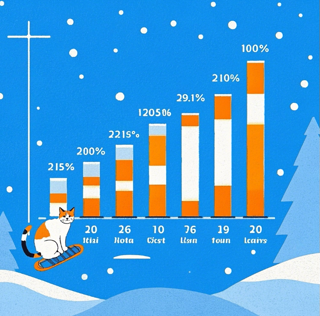What Do Cat Apology Signs Look Like?
Ears Back and Head Down: A cat flattening its ears against its head or lowering its head may signal submission or guilt.
Avoiding Eye Contact: If your cat usually makes eye contact but suddenly looks away, it might be trying to “apologize” for misbehaving.
Slow Blinking: A gentle, deliberate blink can be a sign of trust and appeasement. If your cat blinks slowly after a mishap, it’s likely seeking reconciliation.
Rubbing Against You: Cats use scent glands to mark their territory, but rubbing against you after acting out can also be a way to seek forgiveness.
Bringing Gifts: Some cats “apologize” by bringing you a toy or a dead insect—a gesture rooted in their instinct to share prey.
Key Pet Remorse Indicators in Cats and Dogs
For Cats
Reduced Activity: Guilt can make a cat withdraw or become less playful.
Excessive Grooming: Over-grooming, especially in response to stress, might signal anxiety over misbehavior.
Hiding: A cat that usually seeks attention but hides after a mistake may feel ashamed.
For Dogs
Tucked Tail and Dropped Shoulders: These are classic signs of submission.
Whimpering or Whining: Dogs may vocalize their anxiety when they sense they’ve done something wrong.
Bringing a Toy: Similar to cats, dogs might offer a toy as a peace offering.
Why Pets Show Remorse—and Why It Matters
Fear of Disapproval: Pets want to maintain harmony in their environment.
Social Bonding: They seek reassurance that the relationship is intact.
Learned Behavior: Over time, they connect your anger to their actions.
How to Respond to Your Pet’s Apology
Stay Calm: Avoid yelling, as it can escalate anxiety.
Redirect Their Behavior: If the apology follows destructive behavior, gently guide them to an appropriate activity.
Offer Affection: Petting or praising them reassures them that they’re still loved.
Prevent Future Issues: Use environmental enrichment (e.g., scratching posts for cats, chew toys for dogs) to reduce misbehavior.
Debunking Myths About Pet Remorse
“Pets Look Guilty Because They Know They Did Wrong.”
Actually, they react to your tone and body language, not a moral understanding of right and wrong.“Ignoring a Pet After a Mistake Teaches Them a Lesson.”
Withholding attention can increase stress and weaken your bond. Focus on positive reinforcement instead.“Only Dogs Show Remorse; Cats Don’t Care.”
Cats may express remorse subtly, but they’re just as attuned to your emotions as dogs.
When to Worry: Signs of Stress or Anxiety
Avoids food or water.
Exhibits aggressive behavior.
Develops compulsive habits (e.g., excessive grooming).
Shows sudden changes in litter box or bathroom habits.










